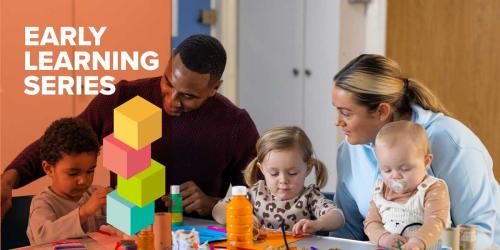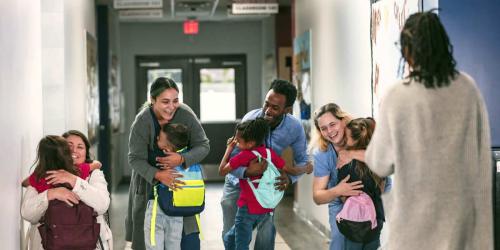Four Principles for Meaningfully Incorporating Youth Voice into Programs and Services

Giving young people a voice in school or a program empowers them and makes them feel like they belong, they are valued, and their contributions matter. These competency feelings also help youth fully engage and develop team-building and leadership skills.
In addition, schools and programs that meaningfully incorporate youth voice into their programming provide more responsive services, helping young people develop social and emotional skills that enable them to thrive now—and into adulthood.
Although incorporating youth voice into academic and other settings isn’t complex, it does require educators and other adults to be mindful and think critically about when they need to step up (and step out) to best support youth.
Too often, as a way to justify the absence of youth-directed learning and engagement in the activities they offer, adults say they don’t have time to figure out how to incorporate youth voice.
It’s important to remember that all innovative practices take time to understand, exercise, and perfect, and if we want to model growth mindsets for young people—and we definitely do!—just because something is hard, it doesn’t mean it’s not worth pursuing.
Here are a few big-picture principles adults can employ to empower young people and meaningfully incorporate youth voice into programs and services:
Become Aware of Adultism
Bias against young people solely because they are young and the idea that adults are somehow better than youth lead to a form of discrimination called adultism. Helping adults become aware of their own biases is an important first step toward empowering young people to have a voice in decisions that affect them at school or in youth programs.
Consider an established activity for your setting, such as students beginning each session with a journal reflection, and ask yourself:
- How does this activity support young people’s belonging needs?
- Do you start every session with this activity because it provides a convenient time to prepare or because it promotes young people’s developmental and belonging needs?
- What other activities could you incorporate into your setting?
Recognize That Young People Often Have the Ability to Meet Their Needs
When we give young people space for innovation, they often have the most powerful ideas for responding to their own needs. Doing so requires adult support and scaffolding, however. You’ll need to consider how you can spur, frame, and guide young people’s voices and thought development, depending on the developmental range of the youth you’re working with.
Ask for Students’ Input
This can be done in various ways, ranging from surveys and focus groups to doing a quick “fist of five” check-in (that is, by asking students to raise zero to five fingers to show their level of satisfaction with an activity or assignment). Try to get quick and actionable feedback on your activities, instruction, and engagement in every session. When students see that you care about improving your practice and need their honest feedback to do so, together, you build reciprocity and mutual respect.
Make Sure Youth Leadership Opportunities are Available for All Students
We often hear adults say something along the lines of, “We already have a youth council, and that should suffice.” The students who participate in these opportunities, however, have usually demonstrated leadership abilities. It’s important that we create leadership opportunities, both large and small, for all youth—especially students whose voices often go unheard.
“Youth Voice” is one of the workshops the Institute for Youth Success (IYS) at Education Northwest delivers to youth workers and volunteers across Oregon. The workshop is part of the Youth Work Methods Trainings series and draws from materials created by the David P. Weikart Center for Youth Program Quality. In collaboration with Education Northwest Researcher Julie Petrokubi, IYS also helps organizations learn how to build and sustain organizational systems that support youth-adult partnerships.



